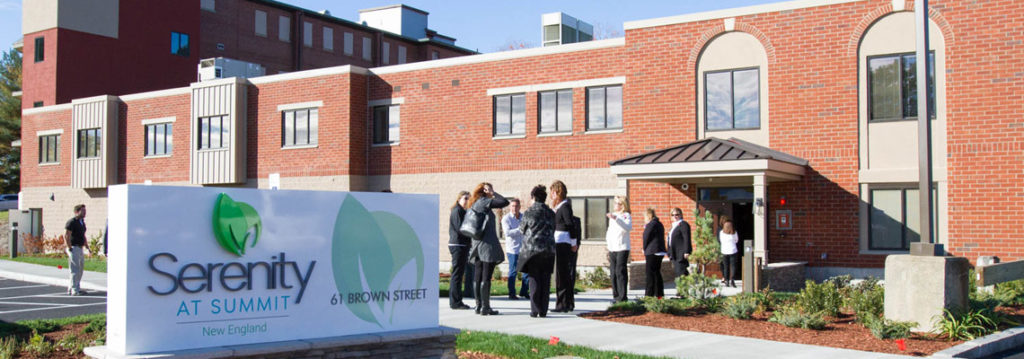
Your friend has taken a courageous step, and they’re on the path to recovery. But now, as their friend or loved one, you might be asking yourself, “What can I do to help?” The truth is, being a support system for someone in recovery can be challenging, filled with questions, uncertainties, and a fear of saying or doing the wrong thing.
Here in New England, where our lives are often intertwined with community and close-knit relationships, providing the right kind of support is crucial. At Serenity at Summit New England in Haverhill, we understand that recovery is a team effort.
We’ve put together five tips for New England residents who want to be a compassionate, effective, and lasting source of support for a friend in recovery.
1. Educate Yourself (and Ditch the Stigma)

You can’t support what you don’t understand. The first and most powerful step you can take is to educate yourself about addiction. It’s a complex disease, not a moral failing or a sign of weakness. Understanding this fundamental truth will change how you view your friend’s struggle and empower you to be a more empathetic ally. You’ll learn that triggers are real, and that relapse is a part of the journey, not a sign of failure.
How to Start: Look for resources from organizations like NAMI Massachusetts or local support groups in the Merrimack Valley. These resources can help you understand the disease of addiction and learn how to support your friend without judgment.
2. Listen Without Judgment (and With Empathy)
It’s tempting to want to “fix” your friend’s problems or offer advice, but often, what they need most is a listening ear. Listening without judgment means giving them the space to talk about their struggles, their fears, and their successes without interruption. It’s about being a sounding board, not a problem-solver.
How to Start: Find a quiet moment to sit down with your friend. You could meet for a sober coffee at a local cafe in downtown Haverhill or take a walk along the Riverwalk. A simple, “I’m here for you, no matter what,” can be one of the most powerful things you can say.
3. Plan Sober, Fun Activities (Especially in New England)

For many, social life and substance use were intertwined. You can help your friend by creating new traditions and finding new ways to have fun that don’t involve drugs or alcohol. New England offers a wealth of sober, engaging activities, especially during the fall season.
How to Start:
- Enjoy the Outdoors: Plan a hike in the White Mountains or a walk through the beautiful fall foliage.
- Get Creative: Go to a local museum, an art gallery, or a community workshop.
- Support Local: Find a local cider mill or pumpkin patch in the Merrimack Valley.
These activities show your friend that a sober life can be a full and joyful one.
4. Be a Source of Accountability, Not the “Sober Police”
There’s a fine line between being a supportive friend and acting like a “sober police.” Your role is not to monitor their every move or question their every decision. Instead, you can be a source of encouragement and accountability. This means encouraging them to attend their meetings, check in with their sponsor, and go to therapy, but without nagging or controlling their journey.
How to Start: You could say, “Hey, I know you have a therapy session today. How are you feeling about it? Is there anything I can do to help?” This shows that you care and are there for them without taking over their recovery.
5. Set Your Own Healthy Boundaries (and Prioritize Your Well-Being)
Supporting a friend in recovery is a marathon, not a sprint, and it’s easy to experience burnout or emotional fatigue. Your well-being is just as important as theirs, and setting healthy boundaries is a crucial part of being a good support person. This means knowing when to say no, when to take a step back, and when to seek your own support.
How to Start: Find a support group for friends and family of those in recovery, like Al-Anon or Nar-Anon. Talking to others who understand your situation can provide invaluable support and help you set healthy boundaries.
You Don’t Have to Walk This Path Alone

Supporting a friend in recovery is a powerful act of love and courage. But you don’t have to walk this path alone. If you’re struggling with how to be a good support person, or if you’re concerned about your own mental health, know that help is available.
At Serenity at Summit New England, we are here for both the individual in recovery and their support system. We offer comprehensive, evidence-based treatment for addiction and mental health, and we can provide guidance and resources for friends and family.
Contact Serenity at Summit New England today for a confidential assessment.

